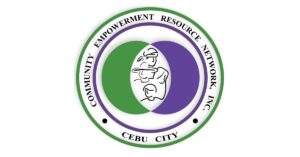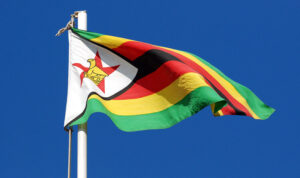The following is based on a communication written by the UN Special Rapporteur on Human Rights Defenders and other UN experts to the Government of Armenia, Canada, Kazakhstan, Russia, and the United States, as well as companies Eurasian Development Bank, GeoPromining, Lydian Armenia, Orion Mine Finance, Osisko Gold Royalties and Zangezur Copper Molybdenum Combine – ZCMC on 12 June 2023. The communication remained confidential for 60 days before being made public, giving the Governments and other actors time to reply. The Government of Armenia replied on 8 August 2023, the Government of the Russian Federation replied on 21 June 2023, the Government of Canada replied on 28 August 2023, the Eurasian Development Bank replied on 12 July 2023, and Lydian Armenia replied on 31 July and 4 August 2023. Osisko Gold Royalties responded on 30 April 2024. If more replies are received, they will be posted on the UN Special Procedures communications database.
At the time of publication, the case against Ms. Tehmina Yenoqyan is still ongoing.
This is a shorter version of the original communication.
BACKGROUND
Topic: criminal charges against Tehmina Yenoqyan, a journalist and environmental human rights defender from Armenia.
Ms. Tehmina Yenoqyan, is a human rights defender and journalist from Gndevaz village in the Vayots Dzor Province of Armenia. She is president of Green Armenia and a member of the Save Amulsar Group, aimed at protecting the rights of local communities in the context of the Amulsar gold mine project. Since 2018, she has been representing Gndevaz community members in a working group created by decree of the Prime Minister Nikol Pshinya to study the impact of mining in Amulsar.
ALLEGATIONS
In 2007, Lydian Armenia CJSC began exploration work to assess the feasibility of gold mining in Armenia. In 2014, the company was granted a mining licence over land in Amulsar and in 2016 it started the construction works for the extraction project in the region.
Since exploration work started, human rights defenders, experts and activists have been denouncing the negative impact of mining operations on the human rights of local communities and the environment in Amulsar. In 2017, local communities blocked the access to the mine and demanded the suspension of the project. Residents’ mobilization intensified during the summer of 2018, when residents of Gndevaz and Jermuk, a neighbouring village also affected by the mine, closed the roads leading to Amulsar Mountain mining site, suspending the project in August 2018. In November 2018, a petition was signed by 3,000 local community members from Jermuk Municipality calling for the mine to be closed. On 18 December 2018, the Jermuk Council adopted an economic development policy based on environmental principles and prohibited metal mining on its territory.
On 16 June 2022, amendments to the draft law “On Making Amendments and Addenda to RA Soil Code” came into force. The amendments included a new article 55.1, extending the exploitation rights on the subsoil also in case of force majeure, which include fires, floods, earthquakes, hurricanes, explosion, war, but also in situations of civil disobedience that may impede the continuation of soil exploitation. The new provision allows for an extension of soil management without any new examination based on such circumstances.
Consequently, under new article 55.1 the permission granted to Lydian Armenia’s to exploit natural resources for the Amulsar project has been extended without a new examination in the aftermath of the protests and blockage organized by affected communities, human rights defenders and civil society organizations since 2018.
On 22 February 2023, the Government of Armenia, the Eurasian Development Bank (EDB) and Lydian Armenia announced the Amulsar gold mine project would resume, engaging in a new protocol. The new protocol provides for a partnership between the Government of Armenia and Lydian Armenia for the implementation of the project, that allows the Government to levy 12.5% of the company’s authorised capital free of charge and in turn, guarantees that Lydian Armenia pays US$ 7 million a year in financial assistance to communities in the Amulsar region over the construction period. In addition, this protocol provides for a US$ 100 million loan from Eurasia Development Bank for the completion of the construction phase of the project, adding up to US$ 150 million already mobilised by Lydian for this purpose.
In relation to Ms. Yenoqyan
Over the last eight years, Ms. Yenoqyan has been actively participating in civil society and community mobilisations against the Amulsar gold mine project and its negative impact on the environment and human rights of local communities.
In 2015, Ms. Yenoqyan represented Gndevaz village in appealing the government’s decision to grant an operating license to Lydian Armenia, and opened a case with the administrative Court of Armenia against the Ministry of Territorial Administration and Infrastructure, the Ministry of Environment and Lydian Armenia, challenging the legality of the permission granted in 2014. This case is currently being reviewed in the Administrative Court of RA.
Throughout 2018, various representatives of civil, political and cultural society in Armenia came to Jermuk to show their solidarity with members of local communities and activists who had blocked the roads leading to Amulsar Mountain. Ms. Yenoqyan hosted many of these visitors and provided support during their stay, alongside playing a key coordination role in the different actions and debates taking place in the community. She represented the community’s position in the working group that had been created under the decree of the Prime Minister Nikol Pshinya in order to study mining projects and any negative impacts on human rights and the environment they may cause. She was also in charge of recording and publishing the meetings minutes.
On 6 September 2018, Ms. Yenoqyan filed a complaint with the police following the collection and publication of videos and photos of her house, which were published alongside abusive comments defaming her in connection to her work on the Amulsar project. The police opened a criminal investigation into the case, which led to the identification of two individuals involved in allegedly illegal camera surveillance and the use of fake Facebook accounts, who are Lydian Armenia’s former employees. The case was initially closed by the Vayots Dzor Regional Prosecutor’s office, but Ms. Yenoqyan then requested the Ararat and Vayots Dzor District Court of General Jurisdiction to consider the case. Ms. Yenoqyan received 308,000 AMD (approximately 800 USD) as a compensation against reputational damages.
On 12 September 2018, residents of Jermuk, Gndevaz and Kechut villages organized a solidarity action in defense of Amulsar, which concluded with a rally during which various statements were delivered, including by Ms. Yenoqyan. On 5 September 2019, Lydian Armenia filed a 1,000,000 AMD (approximately 2,600 USD) legal claim against Ms. Yenoqyan, alleging that the speech she has delivered in 2018 on the occasion of the rally was damaging Lydian Armenia’s business reputation. On 15 December 2021, in first instance, Armenia’s Court ruled in favour of Lydian Armenia as partially satisfying the claim. Both Ms. Yenoqyan and Lydian Armenia filed an appeal against this decision to the Court of Appeals. On 22 July 2022, the court rejected the complaint of Ms. Yenoqyan’s, ruling in favour of the company and ordered that Ms. Yenoqyan publicly refutes “the slanderous information” and that she pays 500,000 AMD (approximately 1,300 USD) for defamation and 500,000 AMD as material compensation “for the insult” to the company. The Court of Appeals also ordered Ms. Yenoqyan to pay legal costs, including 24,000 AMD as an advance payment to the State as legal fees and 200,000 AMD for the company’s legal expenses and attorney fees.
On 9 November 2022, Ms. Yenoqyan filed an appeal against the decision of the Court of Appeals to the Court of Cassation, which, however, was rejected.
On 1 December 2022, Ms. Yenoqyan relayed on her Facebook page a publication from the environmental civil society organization “Right-holder residents of Kapan”, which was posted one day earlier. She included the following text in her post: “Yesterday, the pipeline going from Zangezur Copper-Molybdenum Combine (ZCMC) to its tailing dam broke down again, the Voghji river was again polluted, a criminal case was again initiated and it will be again forgotten, there will be a cover-up and they will move on.”, and a link to a 2019 documentary that she had made on the negative impact of mines in Armenia. Following this publication, Zangezur Copper-Molybdenum Combine CJSC filed a claim for 6,000,000 AMD (approximately 15,600 USD) for damages.
In addition to the above-mentioned criminalization of Ms. Yenoqyan she, as well as other journalists and environmental human rights defenders have been targeted by smear campaigns on social media by Lydian Armenia. Offensive sexist posts have been published on Facebook targeting Ms. Yenoqyan and another woman environmental human rights defender. In April 2019, three of these human rights defenders, including Ms. Yenoqyan, applied to the Yerevan Court of General Jurisdiction seeking remedy. The court decision required Lydian Armenia to compensate each of the three defamed environmental human rights defender.
CONCERNS
The information described above raises serious concerns that gold mining companies in Armenia have increased acts of intimidation and criminalization of environmental human rights defenders and journalists. We are particularly concerned about the abuse of defamation lawsuits filed against Ms. Yenoqyan. These lawsuits appear to qualify as strategic lawsuits against public participation (SLAPPs), aimed at silencing Ms. Yenoqyan through intimidation and exhausting resources.
Concern is also expressed that the Armenian Government may have failed to protect against human rights abuses within its territory and/or jurisdiction by third parties, including business enterprises. This duty to protect human rights requires taking appropriate steps in relation to business enterprises to prevent, investigate, punish and redress such abuse through effective policies, legislation, regulations and adjudication.



